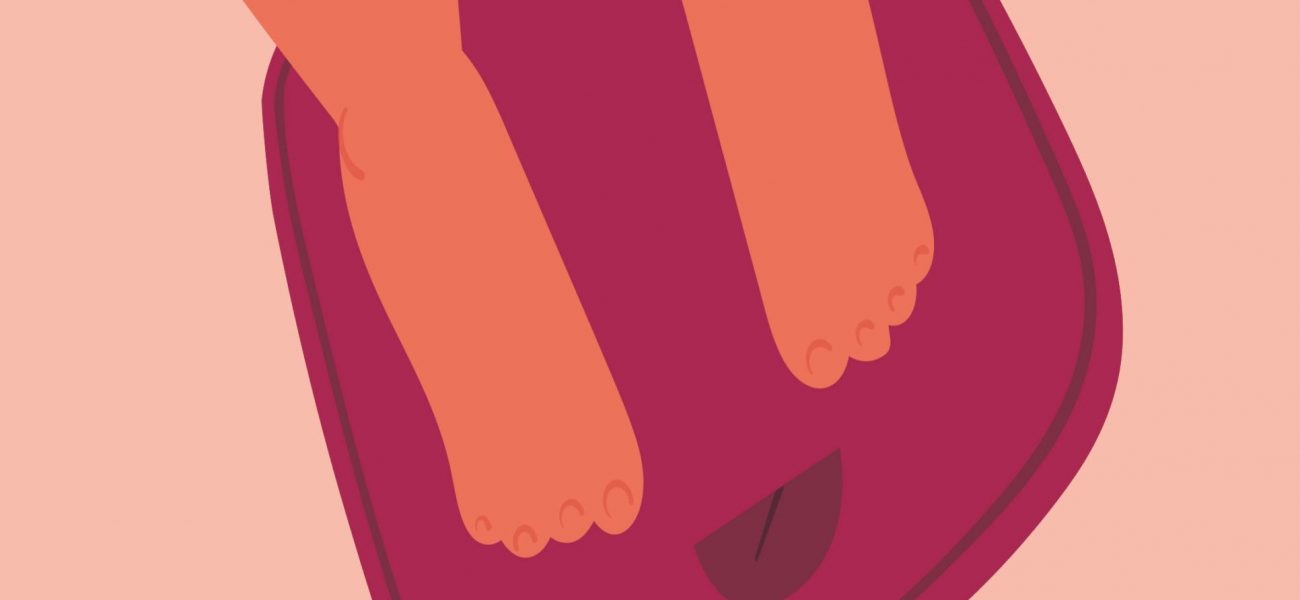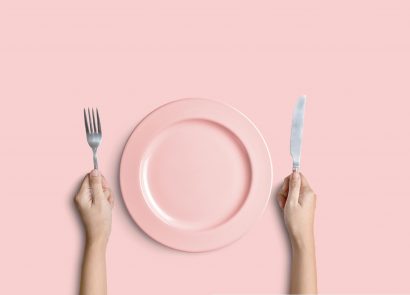From hormones to heart health, we’ve rounded up the best expert advice you and your family need to stay in top health this month
It’s no secret that as we age, keeping the weight off becomes harder. A common train of thought is that our metabolism is to blame, and that as time passes by, it simply becomes a bit lazy. But recent research shows that there are various reasons why we can’t seem to wriggle into that skirt we bought in our 20s. “A shift in your body composition can often go unnoticed as your weight may stay the same,” explains dietitian and founder of CircleDNA and DNAfit, Amy Wells. “When your muscle mass goes down, so does the amount of calories you’re able to burn at rest. So, while your diet might not have changed, the amount of energy your body needs day-to-day has decreased.” To find out why we seem to put on weight as we age, we asked the leading experts in women’s health why approaching middle-age often coincides with going up a dress size.
Hungry hormones
If the lure of eating a large amount of chocolate has ever coincided with your time of the month, you’re probably already aware of the impact our hormones can have on our appetite. In the years leading up to the menopause, our oestrogen levels (the main player when it comes to female hormones) takes a nosedive. A dip in oestrogen changes the fat distribution in our bodies, predominantly the visceral fat that sits around your abdomen. “The transition period into the menopause causes changes to the composition of adipose tissues (our fat) such as leptin (a hormone released from fat cells) and adiponectin (a protein hormone that regulates the metabolism of lipids and glucose), all which again may hamper body weight regulation,” says Dr Efthimia Karra, consultant endocrinologist (hcahealthcare.co.uk). As our oestrogen levels decrease in the years leading up to menopause, this may also cause fluctuations in mood that make it more difficult to stick to a healthy diet and exercise plan. “Levels of our growth hormone also decline with ageing,” says Dr Karra. “As the growth hormone decreases, it’s harder for your body to make and maintain muscle, which impacts how many calories you burn daily.” However, hormonal changes alone don’t necessarily cause weight gain.
Lifestyle changes
Sleeping less? Feeling stressed out all the time? Well, as your lifestyle changes, your body is impacted too. “How our bodies maintain our weight is highly complex and is the net effect of interactions of our genetic make-up with the environment,” says Dr Karra. “We are constantly surrounded by readily available and palatable food. We also have a more sedentary lifestyle due to technological advancements. So, the high-energy intake coupled with decreased energy expenditure are key reasons underlying the current obesity pandemic.” Does your energy expenditure match up to your energy intake? If you’re concerned about the scales sliding upwards, then now could be a good time to think about your diet. Small, simple changes are key to helping to bring back balance. Perhaps that means adding a little more exercise into your week and swapping out a few milky lattes for herbal teas. Whatever it is you think could do with reducing or exceeding, make sure that the changes you want to add in are sustainable long-term.
Lipid turnover
Quick science lesson: lipids, a group of molecules built from fatty acids, are an important part of your cells’ make-up, housing oils, fats and other important molecules to keep your body running smoothly. Research from the Karolinska Institutet in Sweden has uncovered that the lipid turnover in your fat tissue decreases during ageing, which makes it easier to gain more weight, even if we don’t eat more or exercise less than before. “Often, our energy expenditure declines as we age,” says Sarah Ballis, dietitian at The Harley Street Clinic (hcahealthcare.co.uk). “Over-eating by just a small amount each day has a cumulative effect, and over the period of a fortnight, an extra 200 extra calories a day will mean half a kilogram of stored body fat. Over a month and then year-on-year, you can see how easily excess calories can accumulate.” The good news is that readily available and palatable food. We also have a more sedentary lifestyle due to technological advancements. So, the high-energy intake coupled with decreased energy expenditure are key reasons underlying the current obesity pandemic.” Does your energy expenditure match up to your energy intake? If you’re concerned about the scales sliding upwards, then now could be a good time to think about your diet. Small, simple changes are key to helping to bring back balance. Perhaps that means adding a little more exercise into your week and swapping out a few milky lattes for herbal teas. Whatever it is you think could do with reducing or exceeding, make sure that the changes you want to add in are sustainable long-term.
Lipid turnover
Quick science lesson: lipids, a group of molecules built from fatty acids, are an important part of your cells’ make-up, housing oils, fats and other important molecules to keep your body running smoothly. Research from the Karolinska Institutet in Sweden has uncovered that the lipid turnover in your fat tissue decreases during ageing, which makes it easier to gain more weight, even if we don’t eat more or exercise less than before. “Often, our energy expenditure declines as we age,” says Sarah Ballis, dietitian at The Harley Street Clinic (hcahealthcare.co.uk). “Over-eating by just a small amount each day has a cumulative effect, and over the period of a fortnight, an extra 200 extra calories a day will mean half a kilogram of stored body fat. Over a month and then year-on-year, you can see how easily excess calories can accumulate.” The good news is that sarcopenia, reveals a study in The Journal Of Current Opinion in Clinical Nutrition And Metabolic Care. You may also lose muscle if you’re less active due to agerelated health conditions, such as arthritis, or if you’ve had an injury or surgery. “The body also becomes less efficient at using the nutrients we eat,” says Dr Karra. “Protein for example, the building block of muscle, isn’t able to be utilised as effectively for muscle tissue synthesis. This is one of the reasons why older adults need to eat more protein.” A good amount of protein for adults varies, depending on your lifestyle habits, but as a rule of thumb, eating a good portion of protein, for example, 30g at every meal time, has been shown to improve the way protein is used in the body. “Protein servings of this size also increase the feeling of fullness and meal satiety to curb cravings and hunger,” says Sarah. “Enjoy chicken, fish, pulses, eggs and the occasional bit of red meat if you’re flexitarian.
Keep positive
Not being able to fit into the same size clothes as we did when we were younger can often make us feel negatively towards our bodies, but it’s important to remember that your self-worth is influenced by other factors, more so than a number on a scale. If you’re finding it difficult not to berate yourself for putting on weight, here are some H&W-approved tips on how to be kinder to yourself.
Know that your weight fluctuates at different times of year: don’t beat yourself up come the festive season or a celebration, but instead try to eat and move intuitively.
Think about everything your body has been through: our bodies are often markers that show what has happened to us over the years. Childbirth, grief and even happiness all have an impact on how our bodies feel and look, so try to focus on what your body has been through, rather than how it looks presently.
Seek support from the people around you: surrounding yourself with loved ones who support your efforts to eat healthily and increase your physical activity is key. Better yet, team up and make a pact to add changes into your lifestyle together.
Prioritise your health, not your weight: rather than thinking about eating healthily or doing exercise as a form of punishment, do things with your health in mind. Some days you’ll find you crave foods that are fresher and greener and sometimes you may not feel hungry at all and decide to fast until midday. Focus on how your body feels in the moment.






















